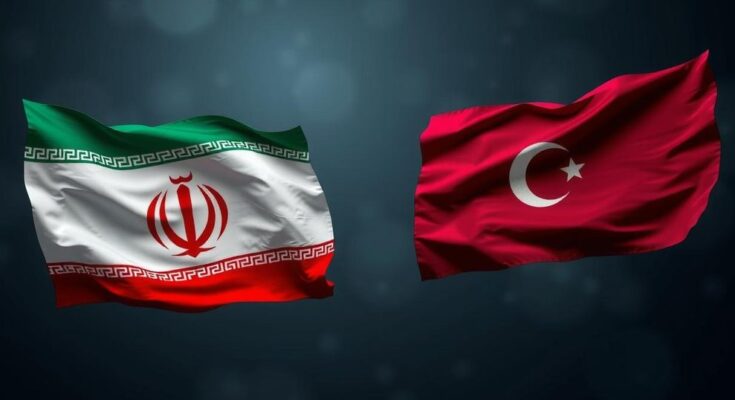Iran’s Foreign Minister Abbas Araghchi met with Qatari and Russian officials, signaling strengthened ties with Qatar and Russia. The discussions focused on regional developments and Iran’s strategic positioning amidst US pressures, especially concerning Hamas. Iran’s frustrations with the EU over sanctions and accusations regarding missile supplies to Russia further illustrate its shift towards closer relations with Russia as geopolitical tensions rise.
Iran’s Foreign Minister Abbas Araghchi recently engaged in diplomatic talks with his Qatari counterpart, highlighting the strengthening ties between Iran and Qatar. According to Iranian state media, this meeting coincided with another significant discussion between Araghchi and Mikhail Bogdanov, the Russian President’s special representative for West Asia and Africa. These interactions underscore Iran’s strategic partnership with both Qatar, a US ally, and Russia amid rising tensions surrounding the Ukraine conflict. Qatar and Iran share a longstanding relationship, particularly evident through Qatar’s hosting of Hamas, a group supported by Iran. The situation has intensified following the October 7 attack on Israel by Hamas, which received Iranian backing. Despite possible US pressures on Qatar regarding its relationship with Hamas, Iran aims to maintain close coordination with Doha on important regional matters, such as potential ceasefire discussions in Lebanon. During their discussions, Deputy Prime Minister Sheikh Mohammed bin Abdulrahman Al Thani and Araghchi addressed bilateral relations and regional developments. Additionally, Araghchi reaffirmed Iran’s commitment to enhancing its cooperation with Russia, emphasizing the productive relationship between Tehran and Moscow. In light of ongoing tensions in Ukraine, where Iran has been supplying drones to Russia, both nations appear increasingly aligned against the West. Iran’s approach is also marked by frustration toward the European Union, particularly regarding sanctions that have targeted its airlines and shipping lines. Araghchi expressed anger over accusations of missile supplies to Russia without evidential support. He assured that Iran would counter unyielding measures taken by the International Atomic Energy Agency (IAEA) during upcoming Board of Governors meetings, indicating a firm stance on international diplomatic matters.
The geopolitical landscape in the Middle East has been evolving, with Iran increasingly reinforcing its alliances with both Russia and Qatar. The relationships are of critical significance, especially as Iran engages with regional dynamics and the influence of US policy. Qatar’s historical ties with Iran and its role as a host to groups such as Hamas complicate the diplomatic interactions, as they navigate pressures from major powers like the US. Concurrently, Iran’s support for Russia amidst the Ukraine conflict signifies a broader strategy to counter Western sanctions and foster economic alignment with both Russia and China.
In summary, Iran’s diplomatic engagements with Qatar and Russia reflect its strategic maneuvering amidst complex regional realities and global tensions. By strengthening ties with these nations, Iran aims to enhance its influence in regional conflicts while countering Western pressures. This approach underscores the intricate web of relationships shaping Middle Eastern geopolitics, particularly in light of recent events involving Hamas and the escalating situation in Ukraine.
Original Source: www.jpost.com




